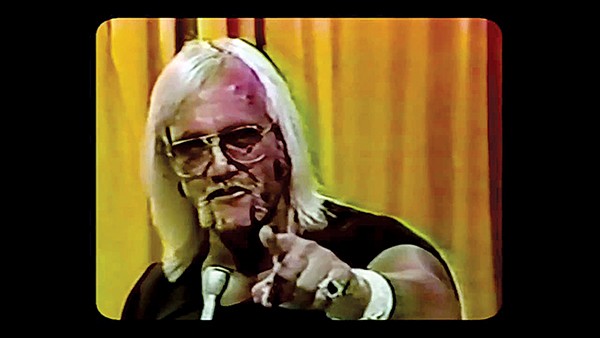The furor over the future of the Mid-South Coliseum has been one of Memphis’ defining civic kerfuffles of the decade. Over its five-decade history, it has been the venue for concerts by the likes of Elvis, the Beatles, and David Bowie, as well as Tiger basketball games and graduations. But the thing the Coliseum is the most famous for is not Elvis Recorded Live on Stage in Memphis. It’s wrestling. Throughout the 1970s, the round house was the site of epic weekly battles between the likes of Tojo Yamamoto, Bill Dundee, and the King himself, Jerry Lawler. Their images went out over the airwaves to millions of households all over the South and Midwest and made folk heroes and villains out of an unlikely cast of characters.
In 1974, Sherman Willmott came to Memphis from Connecticut as an impressionable child, only to discover the joys of TV wrestling. “When we moved here, my sister and I had never seen anything like it,” he says. “We watched cartoons, and then afterwards wrestling came on. Our minds were blown. My sister was crying and screaming because George Barnes and Bill Dundee had put Tojo in the ropes, and one of the guys from Australia — Barnes and Dundee were from Australia — was jumping off the top rope of the ring and hitting Tojo with a chair. We couldn’t believe the referee would let this go on.”
From that moment on, Willmott would be a fan of what he calls “soap opera for the working man.” Professional wrestling was already a national phenomenon in the 1970s, and Memphis was the closest thing there was a national capital for the “sport.” “Lawler is particularly talented with ring technique,” Willmott says. “These guys are so good they don’t even look like they’re working an act. That’s what made it so believable.”

Hulk Hogan
In the 1990s, Willmott founded Shangri-La Records, which brought Memphis alternative music into the national spotlight. His Shangri-La Projects label has produced books on Memphis history, many with local author Ron Hall. “After we did the Garage Rock Yearbook, he threw this thing out to me that he was working on a coffee table book on wrestling. I went to his house to check out the pictures he had acquired, and the ephemera and the ads for the book, and it blew my mind. Ron had grown up here in the 1960s in Memphis as a fan of Billy Wicks and Sputnik Monroe and these guys who were before my time here in Memphis. Growing up with wrestling here in Memphis was awesome. It was a fun little book project to do. Ron brought the ’60s feel to the book project, which was a lot different from the ’70s. In the 1970s, they started doing the music and the more outrageous stuff like scaffolding matches, that originated here in Memphis. They would tie people into the ring with chain-link fences and things like that. The book project was just a fun deal, and I thought maybe we should promote it with a documentary to get the word out. I looked around for people to work on the film, and called Chad Schaffler, because I knew he was a filmmaker, and he was working on a Good Luck Dark Star video at the time. I called and asked if he knew anyone who would like to work on a low-budget documentary, and he said ‘Yeah, me!’ It worked out great. Chad took the ball and ran with it. He tracked down a lot of these guys. We didn’t even know who was alive at the time. We had a punch list of people we wanted to interview, and he found most of them. We got the Coliseum opened through the film commission, and interviewed a bunch of them at once. Lawler was one of the guys we interviewed, and he opened up his little book of phone numbers and shared that with Chad. He tracked down a number of these guys in Nashville and North Carolina. Handsome Jimmy Valiant was in West Virginia.”
Released in 2011, Memphis Heat had a successful four-week run at Studio on the Square. “We knew it was a great film, with great subject matter, but we didn’t really know where it would go. We toured it through the South in movie theaters, and that went really good in Memphis, Nashville, and Atlanta. It’s such a huge learning curve to do something like that when you’re starting out with a $5,000 budget documentary. It got the word out. Even if people didn’t get out to see it, it helped build awareness for the film.”
This week, on the fifth anniversary of the film’s opening, Memphis Heat will return for an encore screening at the Malco Paradiso in conjunction with the release of its soundtrack album, produced by Doug Easley and featuring the River City Tanlines. It’s a good chance to get caught up on a unique bit of the city’s history, with a great piece of Memphis filmmaking.